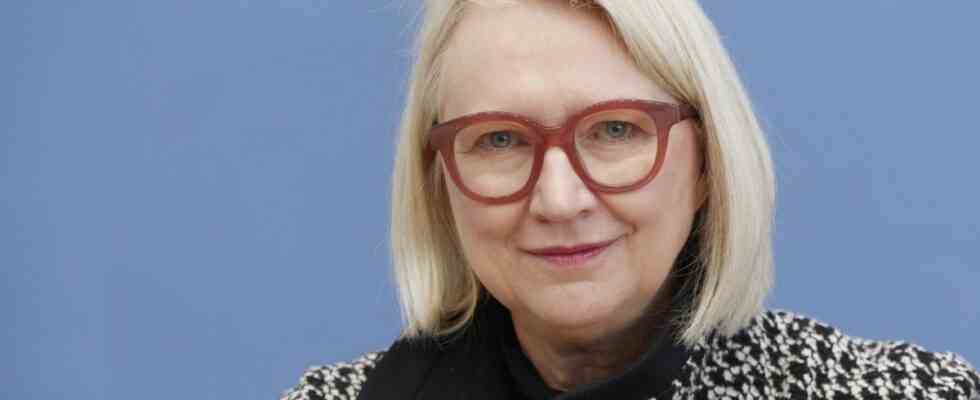She is the first. Before Monika Schnitzer, who is now chairing the Council of Experts, there has never been a woman at the head of the body – in 60 years. In the first 40 years after it was founded, there were no women at all among the five economic wise men. In the most important economic policy advisory body of the federal government, the same male economy spread as elsewhere.
If you ask Monika Schnitzer about it, you will usually get a clear answer. From previous conversations it can be reported that she thinks it is high time for a female head of the council. In a different context, she once found that women did business differently than men: “The VW emissions scandal would not have happened if there were women on the board.” At the moment, however, the economics professor at Munich’s Ludwig-Maximilians-University has to remain silent because the wise men will soon be presenting their annual report for the government.
It is instructive to compare the 61-year-old innovation expert with her predecessor Lars Feld. Like many wise men before him, the Freiburg native always argued in a market-liberal manner and therefore condemned minimum wages, for example. Schnitzer seems less ideologically committed. When she came to the Council of Experts in 2020, she was considered more of a liberal. Because she warned, for example, against promoting companies with billions of dollars without checking them. In the 2021 annual report, she then surprised by presenting a vote together with the more left-wing Achim Truger, which the other wise men did not want to share. In it she writes that it could make economic sense to take on debt for future government spending. This contradicted the rigor with which liberals reject government loans.
In the Corona crisis, Schnitzer demanded more wages for the “heroes of the pandemic”
She also drew attention to herself by saying that “heroes of the pandemic” such as nurses and cashiers earned more money. What? More wages, even if the market doesn’t deliver? With Monika Schnitzer, a politically more open economist is at the head of the Council, whose opinion is not fixed from the outset, but varies depending on the issue at hand. She herself stresses that advice to the government should be based on evidence, i.e. on scientific evidence, not on ideology.
Her life has changed completely as a result of her new position as an economist. She has always worked a lot. She sat on other advisory bodies and headed (here again as the first woman) the Verein für Socialpolitik, the largest organization of German-speaking economists. But since she moved into the council of experts, the pace has increased. The economy is reeling from one crisis to the next, from Corona to the energy shock. Politicians want to know a lot, as does the media.
She thinks it is important to explain the complex economy to the public
In front of the sages, she had whole days of quiet inquiry. Now it sometimes starts early in the morning with a radio interview, ministries ask for an interview and in the evening maybe a talk show. Schnitzer likes it. In the past she often had the impression that politicians did not listen, but now she has noticed that economists have a greater influence. And thinks it is important to explain all these existential but complex economic issues to the public.
Something is likely to change in the Council as well. Schnitzer is considering presenting the public with more than a hundred-page expert opinion in technical language. New, explanatory formats. And for politicians, perhaps shorter expert opinions on individual issues. She is also open to the suggestion that the Council and its technical staff be relocated from Wiesbaden to Berlin, closer to politics.
Economics and politics, that was always a big topic at home at the table with the husband, himself an economist, and their three daughters, who are now grown up. As much as they were obviously interested, none of them pursued an academic career like their parents did.

